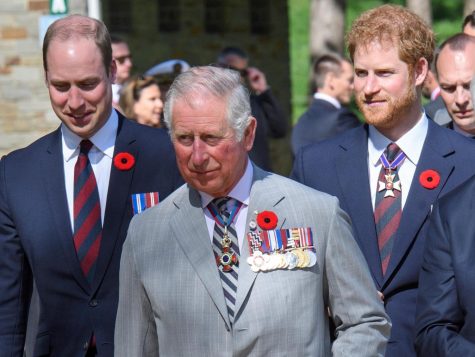The History of Halloween

October 28, 2020
In today’s society, Halloween consists of festive gatherings, trick-or-treating, carving pumpkins, and wearing costumes. But Halloween hasn’t always been like this.
Halloween actually originates from the Celtic festival of Samhain. The day of Samhain marked the end of the summer and the harvest and the beginning of the cold, dark winter, a time of year that is often associated with death. To celebrate this event, Celtic priests would build bonfires where the people would dress up in costumes and gather to burn crops and animals as sacrifices to Celtic deities. They would also tell each other’s fortunes. The celebration would in end by people lighting their hearth fires from the sacred bonfire to help protect them throughout the winter.
The Roman Empire conquered a majority of Celtic lands by 43 A.D. and the two cultures were combining. It was in the eighth century that Pope Gregory III designated November first as All Saints Day, a day that would honor the saints. Soon, this day started to incorporate some of the traditions of Samhain. The evening before All Saints Day was known as Hollows Eve, which became Halloween over time.
The celebration of Halloween has changed a great deal since the times of the Roman Empire. In colonial New England, Halloween was extremely limited because of the strict Protestant belief systems there. The event was much more common in Maryland along with other Southern colonies. As the customs of different European groups and Native American cultures mixed, a new version of Halloween emerged.
This new version of Halloween in America included parties where people would tell stories of the dead, predict each other’s fortunes, dance, sing, etc. In the late 1800s, there was a move in America to make Halloween more about community and less about witchcraft. Because of this, Halloween lost most of its superstitious and religious overtones by the twentieth century.
The history of Halloween is very interesting to look back on. The event has immensely evolved since its origins.













